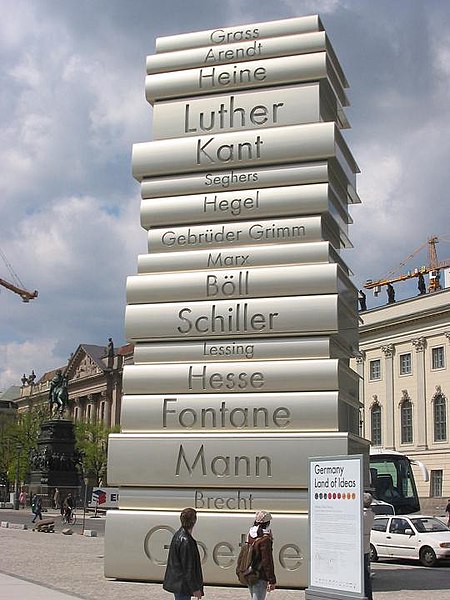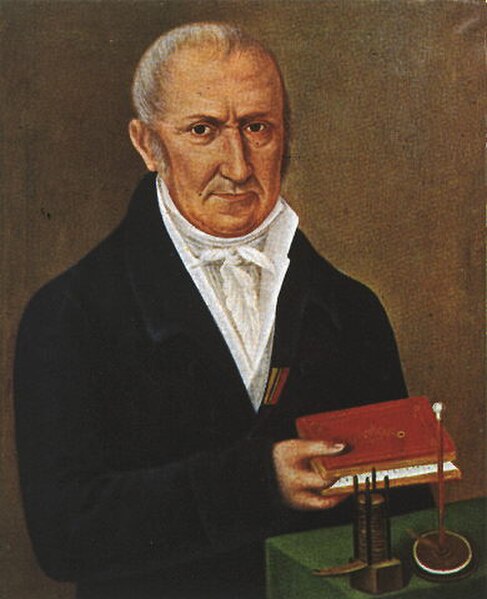Johannes Gensfleisch zur Laden zum Gutenberg was a German inventor and craftsman who invented the movable-type printing press. Though movable type was already in use in East Asia, Gutenberg's invention of the printing press enabled a much faster rate of printing. The printing press later spread across the world, and led to an information revolution and the unprecedented mass-spread of literature throughout Europe. It had a profound impact on the development of the Renaissance, Reformation, and humanist movements.
Posthumous portrait of Gutenberg. No contemporary depictions survive.
A 16th-century copper engraving depiction of Gutenberg
The Gutenberg Bible, now housed at the Library of Congress in Washington, D.C.
"Modern Book Printing" − a Berlin sculpture commemorating its inventor Gutenberg
An invention is a unique or novel device, method, composition, idea or process. An invention may be an improvement upon a machine, product, or process for increasing efficiency or lowering cost. It may also be an entirely new concept. If an idea is unique enough either as a stand-alone invention or as a significant improvement over the work of others, it can be patented. A patent, if granted, gives the inventor a proprietary interest in the patent over a specific period of time, which can be licensed for financial gain.
'BUILD YOUR OWN TELEVISION RECEIVER.' Science and Invention magazine cover, November 1928
Alessandro Volta with the first electrical battery. Volta is recognized as an influential inventor.
Thomas Edison with phonograph. Edison was one of the most prolific inventors in history, holding 1,093 U.S. patents in his name.
The Gutenberg press was voted the most important invention of the second millennium.








